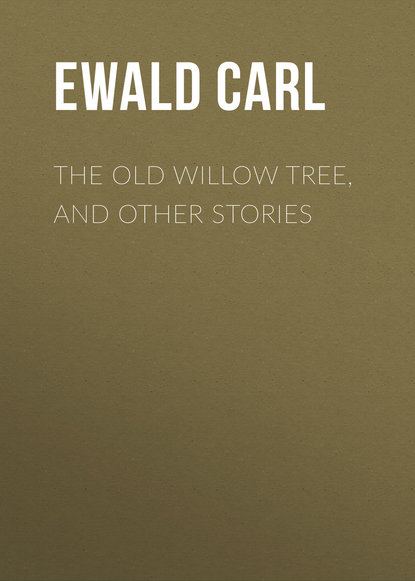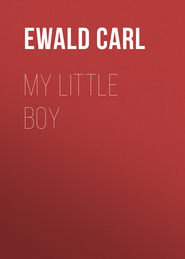По всем вопросам обращайтесь на: info@litportal.ru
(©) 2003-2024.
✖
The Old Willow Tree, and Other Stories
Настройки чтения
Размер шрифта
Высота строк
Поля
"Who is your master then?" asked the linnet. "I will go to him, even if he lives at the end of the earth."
"Ah … if that were enough!" said the wind. "My master is the sun. I run my race at his behest. When he shines really strong anywhere, than I go up with the warm air and fetch cold air from somewhere else and fly with it along the earth. Whether it be east or west does not concern me."
"I don't understand it," said the linnet.
"I don't understand it either," said the wind. "But I do it!"
Then he went down. And the friends stood and hung their heads and were at their wits' end:
"There is nothing for it but to die," said the sheep's-scabious.
"If I have lived through the winter," said the hazel-bush, "I suppose I can stand this. But it's very hard."
And the bell-flower and the sheep's-scabious, who had never lived through the winter, wondered if it could really be worse than this. And the linnet dreamt of the south, where he spent the winter; and the blades of grass had quite thrown up the game.
"Can't your branches reach up to the sun?" asked the sheep's-scabious of the hazel-bush.
"Can't you fly up to the sun?" asked the bell-flower of the linnet.
But that they could not do; and the days passed and the wretchedness increased. It was quite silent in the wood. Not a bird chirped, the fox stayed in his hole, the stag lay in the shade and gasped, with his tongue hanging out of his mouth, and the trees stood with drooping branches, as though they were at a funeral.
Then the bell-flower rang all her bells, as if to ring in death over the wood. It sounded quite still and weak and nevertheless rose high in the air like a prayer:
"My blue bells chime for the rain to fall
In dusty and desolate places,
Where buds that should shine and be fragrant all
Are pining with pallid faces."
It is not easy to know who heard it; and none of the friends said a word. But, at that moment, they all plainly heard some one speak and then they all knew that it was the sun, whom the hazel-bush could not reach with his branches and whom the linnet could not fly to, but who had heard the bell-flower's plaints:
"I shine as I must and not as I please; and I cannot help you. I am bound to go my course round another sun, who is a thousand times larger and better than I. I cannot swerve a foot's breadth from my road; I cannot send down a single ray according to my own wishes."
"I don't understand it," said the hazel-bush.
"I don't understand it either," said the sun. "But I do it."
"And I understand that it is all up with a poor sheep's-scabious," said the sheep's-scabious and died then and there.
3
Then night came and all thought that it would be their last.
But, suddenly, the bell-flower raised her aching head and listened.
She thought she heard a sound as when a drop falls … now came another … it smacked down upon a leaf … and another … and another…
They all woke up, while the rain poured in torrents.
The poor blades of grass stood up, the unhappy moss took fresh courage. The linnet began to sing, though it was a dark night. The hazel-bush shook with delight, until he nearly shook the linnet's young out of the nest.
Everything round about in the wood revived. The night was full of happiness. The ranger and the farmer rose from their beds and met in the rain and shook each other by the hand with glad eyes.
It rained the whole night and the day after and the next night and one day more. Sometimes it rained gently and sometimes hard. The ground drank all the water with a thirsty mouth and the roots sucked it greedily out of the ground and leaves and flowers unfolded and stood erect and blithe on slender stalks.
Then came the third day, with sunshine and a blue sky and life and merriment in the wood.
"Well," said the wind and came darting along as though he had never been tired in his life, "do you see, I brought you the rain?"
"Well," said the cloud, who drifted high above, in a light, white summer suit, "did you see how I came with the rain?"
"Well," said the sun and laughed, rounder and warmer than ever, "so you got what you asked me for!"
The friends looked at one another in surprise. But, a little way off, sat the red fox, with his ugly, clever face:
"That's the sort of people they are," he said. "When you ask them for something, they're not at home. But they never forget to call for thanks!"
THE COUSINS
A Story of the House-mouse, the Wood-mouse, the Field-mouse, The Black Rat and the Brown Rat
1
The house-mouse went about quietly, minding her business.
She lived in the forester's house that lay just on the skirt of the forest, so that there were woods on one side and fields on the other. She had a comfortable home behind the wainscot in the forester's dining-room, right under the window. And the window looked out on the woods; and then down at the bottom of the wall there was a very tiny hole, which the house-mouse was just able to squeeze through, so that she could slip into the woods and home again whenever she pleased.
In this way, the house-mouse had a very enjoyable time; and she had a good time also with regard to the people she lived with. True, the forester was a grumpy sort of man, who could not hear the word "mouse" mentioned without flying into a rage. But he was a very old man and the house was managed by his daughter. She never forgot the house-mouse; and this came of a meeting that once took place between the two. One morning, you must know, the young lady went to the sideboard to get out the sugar for her father's coffee. And there sat the mouse in the sugar-basin. She had forgotten the time and gone to sleep. And there she was!
Of course, she was terribly frightened; and it was worse still when the girl put out her hand over the sugar-basin, as if to catch her:
"So there you are, Mousie!" she said. "I thought it was you that was after my sugar! Apart from that, you're a nice little thing. But you needn't go shaking so terribly in your little grey shoes, for, I assure you, I have not the least intention of doing you any harm. Perhaps you have little children, who would starve if you didn't come home to them. So I'll let you go. But, on the other hand, it will never do for you to go stealing our sugar. So, when you get down to the floor, run straight to your hole. I don't know where it is, but, when I find out, I will put a piece of sugar on the floor outside it, every evening before I go to bed. And then I will look for the hole through which you got into the sideboard and stop it up; and then we shall be friends."
When she had made this speech, which was much handsomer than the speeches which mice are accustomed to hear from human beings, she put the terrified mouse down on the floor. The mouse at once scudded across the room and disappeared in her hole under the wainscoting.
"So that's where you live," said the forester's daughter. "That's all right. Now you will see I shall remember my promise."
In the evening she put a lump of sugar there and she did so every evening before she went to bed. And, every morning, the mouse had fetched the sugar. And, when, one day, she heard a squeaking behind the wainscot, she guessed that the little mouse had now got children; and, from that day, she put two lumps of sugar for her every evening.
The mouse, therefore, could not complain of the people she lived with and no more she did. Add to this that the only cat that the forester's house contained was an enormous old ginger tom who could no longer either see or hear. He had been there in the forester's wife's day. She was dead now. And, as she had been fond of him, he was allowed to live and eat the bread of charity in the forester's house, though he was no longer of the least use. And, as he could not tolerate other and younger cats, there was no other cat in the place, which of course was a great source of joy to the mouse, who often ran right under the old ginger tomcat's nose, without his noticing her.
2
One day, the mouse was sitting outside the hole that led to the wood. It was in the month of August and it was warm and pleasant and she sat basking in the sun with the greatest enjoyment, the more so as she had just given birth to seven blind children, which is no joke, as any mother will tell you. And, as she sat there, the wood-mouse came out of her house under the root of the beech.
"Good-afternoon, cousin," said the house-mouse.
"The same to you, cousin," said the wood-mouse.








